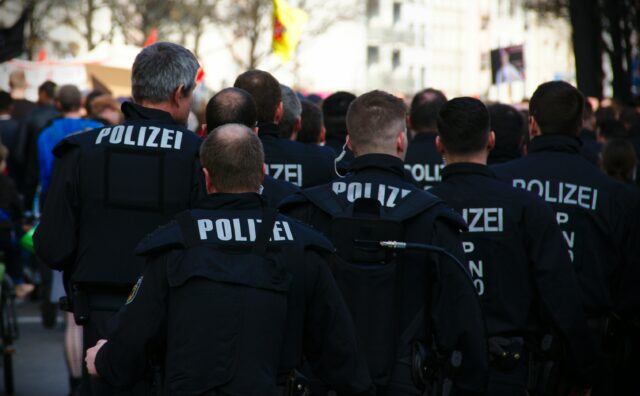
Geopolitical Report ISSN 2785-2598 Volume 41 Issue 16
Author: Giuliano Bifolchi
Executive Summary
The recent arrests of teenagers linked to the Islamic State in both Germany and Switzerland serve as a stark reminder of the persistent threat posed by jihadist propaganda and terrorist organisations in Europe.
These arrests underscore the reality that the European Union is not immune to the possibility of violent attacks, particularly those targeting Christian believers and churches. The recurrence of arrests related to Islamic State cells, particularly in Germany, suggests a rising risk level within the country concerning the terrorist threat.
This report delves into the analysis of the threat posed by the uncovered cell, examining its operational activities and outlining the collaborative efforts between authorities in both Germany and Switzerland to confront and mitigate the emerging security challenge.
Background Information
On April 12th, 2024, the German newspaper Bild reported state security agencies, in conjunction with the Düsseldorf public prosecutor’s office, have identified a dangerous terrorist cell consisting of teenagers. The cell espouses allegiance to the terrorist organisation Islamic State and has demonstrated intent to conduct attacks targeting Christians in churches, police officers in police stations, and other non-believers.
The investigation has revealed a network of individuals, including teenagers and young adults, actively involved in planning and discussing potential terrorist acts via online communication platforms.
On April 13th, 2024, Swiss newspaper Blick reported detention of two teenagers, a 15-year-old Swiss and a 16-year-old Italian, in the Swiss canton of Schaffhausen, on suspicion of links to the Islamic State terrorist group.
The Swiss newspaper stated that the detained individuals may have been involved in supporting or participating in Islamic State activities, including the preparation of deliberate acts of violence. Furthermore, evidence of connections with like-minded individuals in Germany underscores the cross-border reach of extremist networks in the area.
In addition, another individual connected to the arrests in Schaffhausen was captured in the canton of Thurgau. Identified as an 18-year-old Swiss citizen, this individual is alleged to have played a role in planning terrorist attacks within Swiss territory.
Risk Assessment
The emergence of this terrorist cell underscores the persistent threat posed by extremist ideologies and the susceptibility of vulnerable individuals, including youths, to radicalisation.
The geopolitical landscape in Europe remains influenced by complex dynamics, including social, economic, and religious factors, which can contribute to the propagation of extremist narratives and recruitment efforts by terrorist organisations like the Islamic State.
The activities of the uncovered terrorist cell represent a significant risk to public safety and national security in both Germany and Switzerland. The planned attacks targeting religious institutions, public gatherings, and law enforcement entities highlight the potential for mass casualties and societal disruption.
The involvement of minors in terrorist activities underscores the need for enhanced measures to counter radicalisation and prevent the exploitation of vulnerable individuals by extremist groups.
Efforts to address the threat posed by the terrorist cell have involved close collaboration between security agencies and law enforcement authorities in Germany and Switzerland. Information sharing and joint investigations have facilitated the identification and apprehension of key suspects, including individuals previously unknown to authorities. The coordinated response underscores the importance of cross-border cooperation in combating transnational terrorism and mitigating security threats that transcend national boundaries.
Conclusion
In conclusion, the recent spate of arrests in Germany, both in January 2024 and July 2023, targeting terrorist cells affiliated with the Islamic State and composed of Central Asian nationals, underscores the escalating geopolitical risk within the country.
These incidents serve as stark reminders of the persistent threat posed by online jihadist propaganda, exemplified by the propagation of extremist ideologies capable of radicalising susceptible individuals and catalysing lone wolf or independent cell attacks on civilian targets, such as churches and public venues.
Furthermore, the recent terrorist attack on Moscow’s Crocus City Hall and the dissemination of jihadist propaganda across the dark web and various social media platforms, encouraging Islamic State sympathisers to target Europe, particularly during high-profile events like UEFA Champions League or the UEFA European Championship League upcoming football matches, reinforce the resurgence of terrorism as a paramount menace to European security.
These developments not only pose a threat to public safety but also have a significant impact on the society and domestic political landscape across the continent.
Read also | The Terrorist Threat in Germany and Its Link with the post-Soviet Space |
If you need more details, reports, or risk assessments on the terrorist threats and jihadist propaganda impacting Europe, feel free to reach out to us at info@specialeurasia.com.



